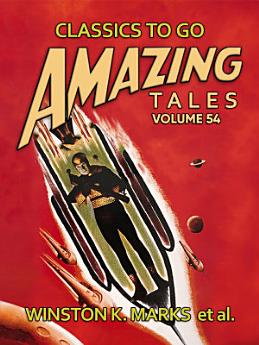Amazing Tales Volume 54
About this ebook
About the author
Winston K. Marks, an enigmatic figure in mid-20th century science fiction, carved a niche for himself with his imaginative and often provocative short stories. Born in 1915, Marks emerged as a prolific writer during the Golden Age of Science Fiction, a period marked by rapid technological advancements and a burgeoning interest in speculative narratives. His works frequently appeared in popular pulp magazines, captivating readers with their blend of scientific curiosity and human drama. Marks was known for his ability to weave complex, thought-provoking plots that often challenged societal norms and delved into the ethical implications of scientific progress. His stories were not just entertainment; they were a mirror reflecting the anxieties and hopes of a post-war world grappling with the dawn of the atomic age and the space race. Despite his significant contributions, Marks remained somewhat of an outsider in the literary community, avoiding the limelight and rarely engaging in public discourse. This air of mystery only added to his allure, drawing readers who were eager to explore the uncharted territories of his mind. Controversially, Marks often tackled themes of government surveillance and individual freedom, predating the cyberpunk movement and influencing later writers like Philip K. Dick and William Gibson. His foresight into issues that resonate even more today, such as privacy and the ethical use of technology, marks him as a visionary whose work continues to be relevant. Winston K. Marks may not have sought fame, but his legacy endures, inspiring new generations of writers and readers to question the world around them and imagine the possibilities beyond.










